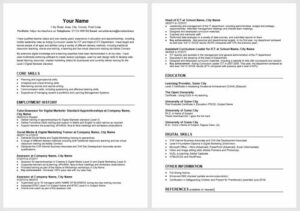People are often overwhelmed when it comes to applying for jobs outside of their expertise. Many teachers joining the Thinking of Leaving Teaching? Facebook Group say they don’t know where to start. What I have here is a set of steps that I would suggest that you take if you feel the same:
Contents on this page
- Do a SWOT Analysis or other Self-assessment
- Research Jobs
- Learn any skills that you may need
- Update your CV and complete application forms with ‘non-teacher’ language
- Job Hunting – Knowing Which Job Sites To Use
- Networking and LinkedIn
- Writing prospective emails to businesses
- Predict interview questions and create a story of why you are leaving/left teaching
1. Do a SWOT Analysis or other Self-assessments
“Should I Stay or Should I Go?” flowchart
My “Should I Stay or Should I Go?” flowchart may help you decide the next step to take. The blue shapes relate to pages in my website. You can find these links on the Thinking of Leaving Teaching homepage.

What are you passionate about?
Ask yourself questions like ‘What kind of things do you like doing in a job?’, ‘What do you enjoy learning about?’ and ‘Which skills do you enjoy using?’
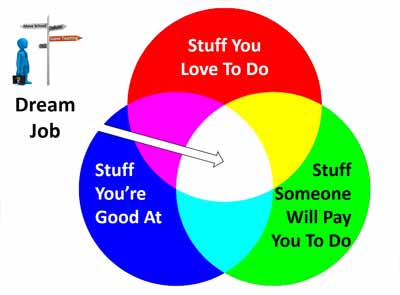
Think about what you’re passionate about. What other hobbies and interests do you have? My partner loves art; she studied History of Art ‘A’ Level and loves to draw. She recently got a job as Art Gallery Manager. Cath commented on my Thinking of Leaving Teaching Facebook page:
My turning point was looking at my passions and hobbies outside of teaching. This not only led to new job ideas but also helped my self worth.
Maybe consider going self-employed. It is a brave move, but if you’re passionate about doing something then why not consider it? When you work for yourself, you have control over your time schedule and workload; you’re your own boss! If you choose to go self-employed having found people to pay you to do the stuff you’re good at and that you love to do, then that could be your dream job.
What do you like/dislike about your job?
One thing that helped me was writing down what it was about teaching that I liked and also what I didn’t like. In addition, I wrote down other things that I liked doing and finally what I thought were the deal breakers in a job. Here’s an example:
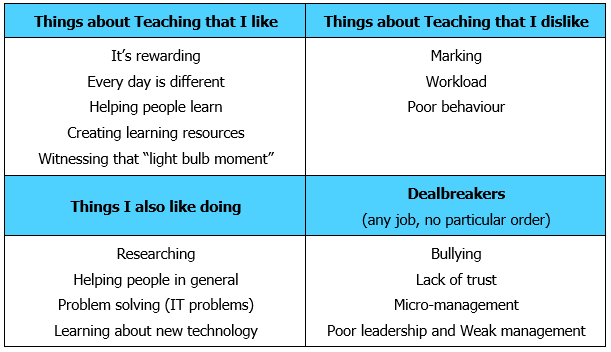
My example was very basic, but it was a start. Writing a list like this is a useful exercise because it will help you focus what it is you’re looking for in a new job. For example, you may write down that you like ‘helping people’. There are plenty of other jobs where you can get satisfaction from helping people. For me, marking was always the worst thing about teaching. I now have a job that satisfies all the left-hand side (I’m a Learning Technologist), where there is some teaching/training, but it includes none of the things about teaching that I dislike. Of course, the deal breakers could happen in any job, due to change in management.
SWOT Analysis for a Teacher Leaving Teaching
A more detailed tool is a SWOT analysis (SWOT stands for Strengths, Weaknesses, Opportunities and Threats) and this can be used to evaluate your career goals. You can create your own SWOT analysis using Indeed’s How to create a personal SWOT analysis in 5 steps. Here is an example of a SWOT Analysis for a teacher who is leaving teaching (with the help of Google’s Gemini).
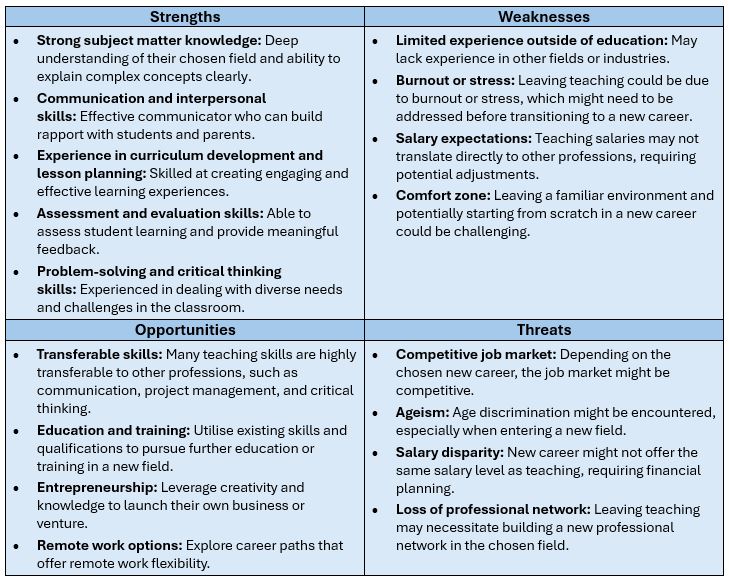
This SWOT analysis is a starting point for you to consider your strengths, weaknesses, opportunities, and threats when making a career transition. By understanding these factors, you can make informed decisions about your next steps and leverage your existing skills and experience to build a successful future outside of teaching.
You could also use personality and aptitude tests. One example I talk about is the Myers-Briggs Type Indicator (MBTI).
2. Research jobs
When you have found out what you like doing, you will need to research jobs. The hardest part of leaving teaching, though, is trying to find out what else you can do. My initial search for jobs outside of teaching was frustrating as I had no idea what job titles to search for when I was job hunting. You can’t search for a job if you don’t know what you’re searching for!
Teachers will know about teaching jobs. They may have heard about jobs that friends and family members do, but won’t know much about those jobs. Then there will be the hundreds of other jobs out there that they don’t know about yet. It’s a case of ‘not knowing what you don’t know’.
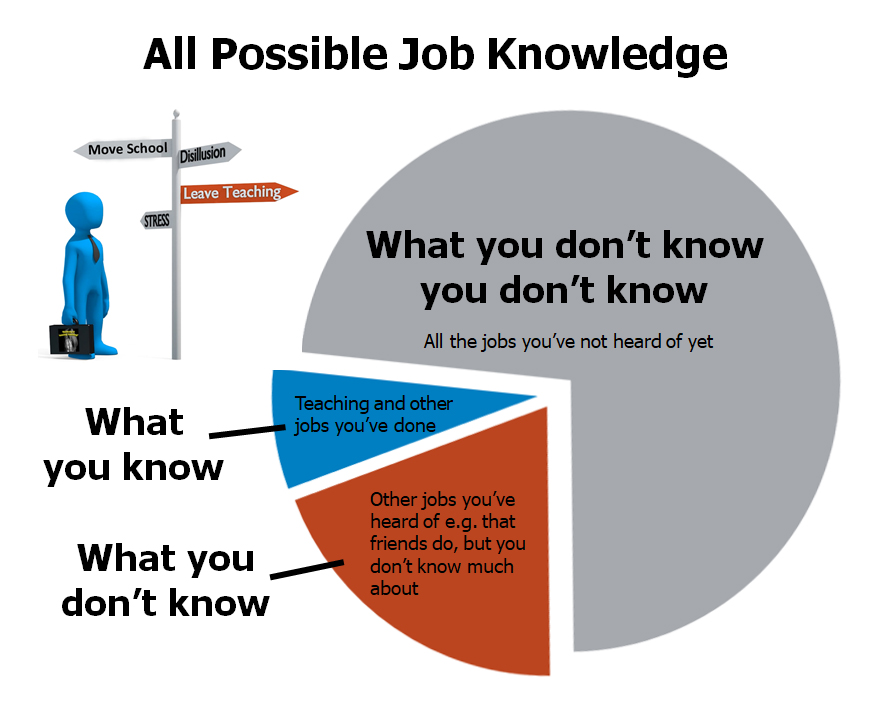
Where to find job titles
In August 2019, at the ripe old age of 52, I landed a job as an Learning Technologist. It’s the best job I’ve ever had and totally suits my personality and skill set. However, when I was thinking of leaving teaching back in 2013, I wasn’t able to search for Learning Technologist jobs because I’d never heard of the job title. It was only through a lot of research that I discovered that job title. Here are two useful links to help you do this:
Other Jobs Teachers Can Do
Take a look at my Other Jobs You Can Do section of this website.
Success Stories
As of June 2025, there are over 230 success stories from ex-teachers who got jobs from Academic Developer to Youth Staff Entertainment.
The jobs/success stories can be found at the Success Stories page here on my website and are organised into the following categories:
Joining Facebook groups to do with leaving teaching is one way that you can find out about other jobs from other teachers and ex-teachers. My private Thinking of Leaving Teaching? Facebook Group is a safe place for people to ask for help and advice about jobs you can do if you leave teaching. It is a good place to get ideas, especially from those who share their experiences of leaving teaching. With an anonymous posting option, it is a safe place for those who may be concerned about privacy. The advantage of it being a private group is that comments are not open to the public.
Career Experiments (thanks to Nicola Porter for this)
Why not plan a few career experiments for the summer? One way to start might be to brainstorm a list of possible ideas – they can be roles, projects, interests. Don’t worry too much about practicalities: this is a creative exercise. Look for inspiration here and online, friends and family and what they do and even TV. Look for recurring themes. Then pick the one that’s most appealing. Or doable. Or challenging! You choose! How could you try it out in some way. I love that part – there’s so much you can do.
Career shift projects like this can start small (e.g. a workshop or a conversation with someone) and build to something bigger (e.g. a course or shadowing or doing an internship). Some career change experts actually recommend starting this way rather than with strengths, values, etc. But both are actually helpful.
Nicola Porter is the Thinking of Leaving Teaching Group expert in Career Counselling and occasionally advertises career workshops in the Thinking of Leaving Teaching? Facebook Group. If you are interested then you will need to sign up for them.
3. Learn any skills that you may need
The new career that you are looking to go into may require some new learning. This can be a bit of a hurdle. Some teachers say, “I’ve worked hard to get where I am. I don’t want to do any more qualifications and start at the bottom.” The problem is that other people already in those jobs have also worked hard! You wouldn’t expect someone who has just qualified with a PGCE to get their first teaching job as part of the leadership team, so you can’t expect to go straight into another job at board level.
You may have transferable skills, but you might need to retrain and get a qualification or two for your new career. For example, if you are wanting to do online tutoring then you may need to complete a TEFL course.
You may have to learn some technical skills that you will need for that new job. Skills I learnt about to get my job as a Learning Technologist were video and photo editing (using Adobe software), video conferencing and multimedia authoring software. You can find many courses online and some may be free.
A Microsoft qualification would be useful, especially as recruitment agencies often ask for experience of Word, Excel and PowerPoint in “admin skills”. In 8 hours of learning, you could gain the Microsoft 365 Teacher Academy badge which would show evidence of your knowledge of Microsoft 365. In this course, you learn how to use basic features of Microsoft 365 tools including Microsoft Teams, OneNote, Sway, Microsoft Forms, and OneDrive.
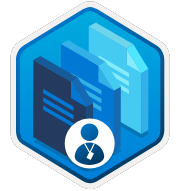
If you sign in to the Microsoft Learn Educator Centre, you could nominate yourself as a Microsoft Innovative Educator Expert (MIEE or MIE Expert). In this process, you are expected to understand and demonstrate how the Microsoft suite of solutions supports teaching and learning. That would show both knowledge and application of Microsoft products.
You may already have all of the transferable skills and qualifications you need from your job as a teacher.

You could invest in continuing professional development (CPD) and expand your skills by taking courses offered by online learning platforms I have experience of, such as OpenLearn, FutureLearn and The Centre of Excellence.
Other online learning platforms include Udemy. Khan Academy, Coursera and edX.
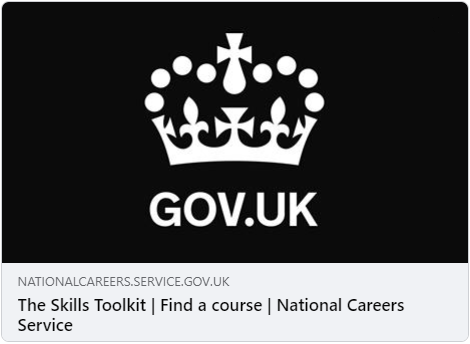
In April 2020, the Department for Education launched the online platform “The Skills Toolkit“, offering people access to free, high-quality digital and numeracy courses to help build up their skills, progress in work and boost their job prospects. Some of these are from organisations named above, such as OpenLearn and FutureLearn.
Study for a Masters
Think about what you might want to do next, whether or not that’s in education. Another qualification may be the way forward. Ask yourself, “What am I hoping to achieve and will this help me achieve that?” Here is some feedback from people who chose to study for Masters degrees:
I graduated with my masters on the 1st April. I’m 59. I was a teacher while I did it through the OU – but it broadened my horizons and gave me enough confidence to walk away. You will get soooo much out of doing it – and trust me, you don’t feel old doing it!
I did my history masters after teaching for 2 years. Took the year out too. Worked in the library and did day to day supply. I did have the intention to leave after completing it, didn’t happen. But I loved doing it. Considering another now I have left.
I left my teaching job after 16 years last summer and have been doing a full-time Masters in psychology this year. I have absolutely loved it! Met loads of interesting people there of all ages and it has been so nice to learn something totally new. It has been a real confidence booster too.
I loved my MEd. I want to do another one in psychology next. Do what you’re interested in.
I’m doing a part-time master’s in Computer Science and Data Science to try and switch career to data science. 1 year through already, finish this time next year.
I have applied for a masters in Childhood and Youth studies. There are modules about working with families, as I want to get a job about supporting families in other services.
I finished my MA last year. I did it part time and really enjoyed it. It has certainly been a focus for change and helped increase my confidence. I’d recommend it.
4. Update your CV and complete application forms with ‘non-teacher’ language
Update your CV (resume)
As a teacher, you may not have updated your CV for a while and so this is an area you will need to spend some time on. You will need to update your CV with your experience and skills in a ‘non-teacher’ way. A common mistake is for teachers to use the same language that they used as a teacher. “Created KS3 scheme of work” is meaningless to a recruiter without an education background.
I have put together a lot of very useful information on this website about improving your CV, including both links to my own anonymised CV (which you can download above) and links to other CV examples and templates, at Job Search – Writing Your CV.
Identify your Transferable Skills
After years of stress you may have low self-esteem and be thinking, “What else can I do? All I can do is teach!” That’s simply not true! You will have many transferable skills that are useful in other jobs.
Start by looking at your transferable skills at Job Search – Transferable Skills. This is useful because I have analysed person specifications for many jobs I have looked at over the last six years and identified the most desired skills. I have then made this relevant to teachers by looking at these skills in your role as a teacher.
“When you are teaching it is difficult to think about what else you could do and if you have the skills. You’ll be surprised by the skills you actually have.”
A comment from my Thinking of Leaving Teaching Facebook page
Use AI to help you with your CV and Cover Letter
In January 2023, I saw a job advertised on Indeed and decided to apply for it. After updating my CV, I decided to find out what would happen if I asked ChatGPT, “Write a cover letter for a [name of job role that I applied for] job”. I copied it, edited it to make it more relevant to my experience, pasted that cover letter in the relevant section, and then submitted my application. Nearly two weeks later, I received an offer of a job interview 😊 Last year, I had interviews for two other jobs using cover letters that I had written with the aid of AI.
Find out how AI can help you with your job searching at Job Search – Using AI to help you with your Job Search.
5. Job Hunting – Knowing Which Job Sites To Use

I have put together a lot of useful resources on this website at Job Search – Job Hunting. Apart from the job sites that many are familiar with, such as Indeed, I mention other job sites, such as jobs.ac.uk (“Great jobs for bright people”) which is a job board for jobs in Universities and FE Colleges. I had several interviews through this site and got my current job through that site. I have also included some job sites that others have suggested.
One thing that people complain about when job searching is that the job titles often don’t mean much. Each organisation has a different job title for similar roles. For example, my job title “Learning Technologist” is also called eLearning Technologist, eLearning Specialist, TEL Developer (TEL stands for Technology Enhanced Learning), Learning and Technology Officer and even Digital and Online Learning Advisor in other universities. This is why it is important to look at the person specification in job adverts.
You may need to plan answers to competency-based questions for application forms and I have put together some very useful resources for job applications in Job Search – Completing Application Forms.
6. Networking and LinkedIn
As much as I dislike social media (mainly due to the toxic behaviour on sites such as Twitter (X) and am not a natural ‘networker’), LinkedIn is a very useful site when job hunting. I would advise you to get a LinkedIn account, if you haven’t already.
LinkedIn allows you to search for jobs so if you’re not on there and you’re thinking of leaving teaching then it may be worth joining and making connections. I know some self-employed people who swear by it. Changing jobs or careers can depend on your network so it makes sense to harness the power of LinkedIn for this reason alone, never mind its job search capabilities. Read Nicola Porter’s article on “How and why to get started with LinkedIn if you’re thinking of leaving teaching“.
Once you have identified what industry you would like to get into, start connecting with people in the sector. It is a fact that many people get jobs through networking, by building a network of contacts. Through LinkedIn, by setting up job notifications, you will learn of job opportunities.
Some people ask about general use of LinkedIn. Here are two links to Beginners Guides:
- How to use Linkedin for beginners
- How To Use LinkedIn Beginners Guide – 2023 (video also in article)
Networking – ‘Planned Happenstance’
This is a careers theory called “Planned Happenstance” which suggests that rather than developing a very rigid idea of what you want to achieve and how to get there, you can work with some vague ideas, do some generally positive things in broadly the right direction and still have confidence that in doing so, things will happen.
I once resigned without a job to go to. I still had another month to work and so a month to get another job. I applied for a job which was advertised as very short-term (just 6 weeks). The job involved online training using Adobe Connect (similar to Zoom, Teams, etc) and so was useful experience. The job gave me some breathing space, useful experience, and it allowed me to pay my bills while I continued applying for other jobs. By the time the short-term contract had ended, I had an interview lined up for another job. They had already spoken to me unofficially; I was exactly what they were looking for!
An interview was arranged for a few days after. I know I would have got the job. BUT… I broke my leg a couple of days before the interview. The job involved driving to see apprentices and so I couldn’t do it. Breaking my leg made me unemployed and I would stay unemployed for a minimum of 6 weeks. After 2 months of unemployment I was absolutely desperate. Then, out of the blue, the manager of the company who I’d worked with for the 6-week contract phoned me up. A 6-month post had come up and he wondered if I would consider it. Of course, my answer was yes, and my career has improved ever since. The key point here is that I took on a very temporary 6-week job which opened the door to other opportunities. This was a ‘planned happenstance’. Read this blog, How ‘Planned Happenstance’ can help your career.
7. Writing prospective emails to businesses
Writing prospective emails directly to businesses to inquire about vacancies can be a good idea, especially in conjunction with other job search methods.
This worked for me back in 2015. I was a qualified Assessor and I decided to contact learning providers directly to see if they were looking for assessors. I was proactive and sent out over a dozen prospective emails to training providers enquiring about assessor jobs. I received only one reply, but the Director of that company invited me to come in and have a chat. We got on well, and he asked me if I would be prepared to shadow one of their assessors for a couple of weeks to get an idea of what was involved. I said yes and they took me on as a part-time assessor a few weeks later.
The advantages of contacting a company directly are:
- It shows initiative – it demonstrates your proactiveness and interest in the company.
- It may uncover hidden opportunities – some companies may not advertise all their openings, so reaching out directly can make you aware of unlisted positions.
- It can help build your network – even if there aren’t current openings, you make contact and put yourself on their radar.
Here are some tips to maximise your chances of success:
- Target your approach – Research companies you’re genuinely interested in and where your skills align.
- Personalise your message – Don’t send generic emails. Briefly mention why you’re interested and what you can offer.
- Keep it concise and professional – Proofread carefully before sending.
8. Predict interview questions and create a story of why you are leaving/left teaching
When completing the Previous Employment section in application forms, one of the sections you may be asked to complete is your reason for leaving. You may also be asked this in interview. I was asked why I had left teaching in several job interviews, so it may be a good idea to create a story about your career change as a way of selling your strengths.
Check out the Reasons for Leaving Teaching page which will help you answer this in interview.
I found interviews to be my weakest link. I was successful once I started writing down answers for questions that would most likely be asked and learnt them off-by-heart. Predicting the questions I would be asked made me more relaxed in interviews.
You may need to plan answers to competency-based questions for interviews, and I have put together some very useful resources for job interviews in Job Search – Interview Questions.
You may be up against candidates who have been in the industry for a while, so it is important to learn how to sell yourself for the new role.



